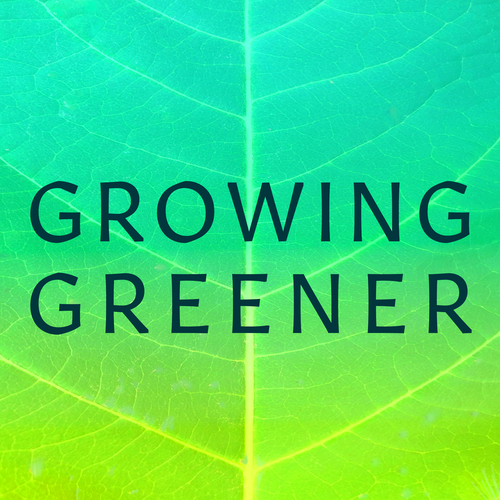Internationally acclaimed landscape designer Edwina von Gal’s Perfect Earth Project uses imaginative strategies to connect landowners big and small with nature-based, chemical-free and biodiversity friendly management practices
How Human Manipulation Affects the Relationship of Hydrangeas and Pollinators
Subscribe to Growing Greener on Apple Podcasts | Google Podcasts | Spotify | Amazon
Garden activist and educator Cathy Ludden describes her encounters with hydrangeas and how transforming the flower heads to suit human aesthetics has proved both harmful and beneficial to pollinators
A Masterful Integration of Natives and Exotics
Richard Hayden, Senior Director of Horticulture at New York’s magical garden, the High Line, describes how it integrates North American native plants with carefully chosen exotic species to create a whole that delights human visitors while also supporting wildlife and providing a powerful reconnection with nature
Giving a Neater, more Domesticated Look to the Native Plant Garden
Many homeowners who admire the beauty and environmental benefits of native plants don’t care for the wilderness look of the typical naturalized native plant garden. Garden designer Britney O’Donnell shares tricks for designing and maintaining a more domesticated native plant landscape, one that fits better a neater suburban context
Will Nature Heal Itself?
Skeptics say that invasive species are not a serious threat to biodiversity, that “Nature will heal itself” despite the looming, man-made mass extinction. Today, paleobotanist Dana Royer describes the five mass extinctions of the past, and why recovery from such episodes typically took millions of years
Blending Native and Non-Native Plants to Benefit Pollinators – and Gardeners
Making Lawns Non-toxic and Environmental Contributors
Back to the Future
A Natural Gardening Leader Speaks Out
Rethinking Lawns
For Peat’s Sake
Alex Critchley and
Sarah Johnson of The Wildlife Trust for Lancashire, Manchester & North Merseyside describe the growing movement in Britain to ban the sale of peat and peat-based gardening products, and their organization’s efforts to preserve and restore peatlands, a key piece in the battle against global climate change
American Conservation Pioneer Evolves to Address Contemporary Challenges
Established in 1875, American Forests is a non-profit that was an enormously influential pioneer in addressing the over-exploitation and destruction of our nation’s forestlands.
Listen as Benita Hussain, chief program officer for tree equity, describes how the organization has pivoted to assisting communities across the country bolster urban forests and fight climate change in economically challenged neighborhoods.
The Coevolution Arms Race
Progress in the Battle Against Emerald Ash Borers
Making Room for Bats
A Rich Source of Native Lawn and Groundcover Plants
Carol Reese Explains Sex in the Garden
Lars Chittka and The Mind of a Bee
Creating a Meadow the Ecological, Easy Way
A Garden Icon’s Disastrous Impact on Our Native Flora
Although beloved by gardeners, earthworms are not native to the northern half of North America and can cause extreme changes in soil ecology there, with disastrous effects on native plants and animals. A recent study Dr. Jérome Mattieu of the Sorbonne and colleagues reveals routes by which 70 species of alien earthworms are spreading throughout the United States

